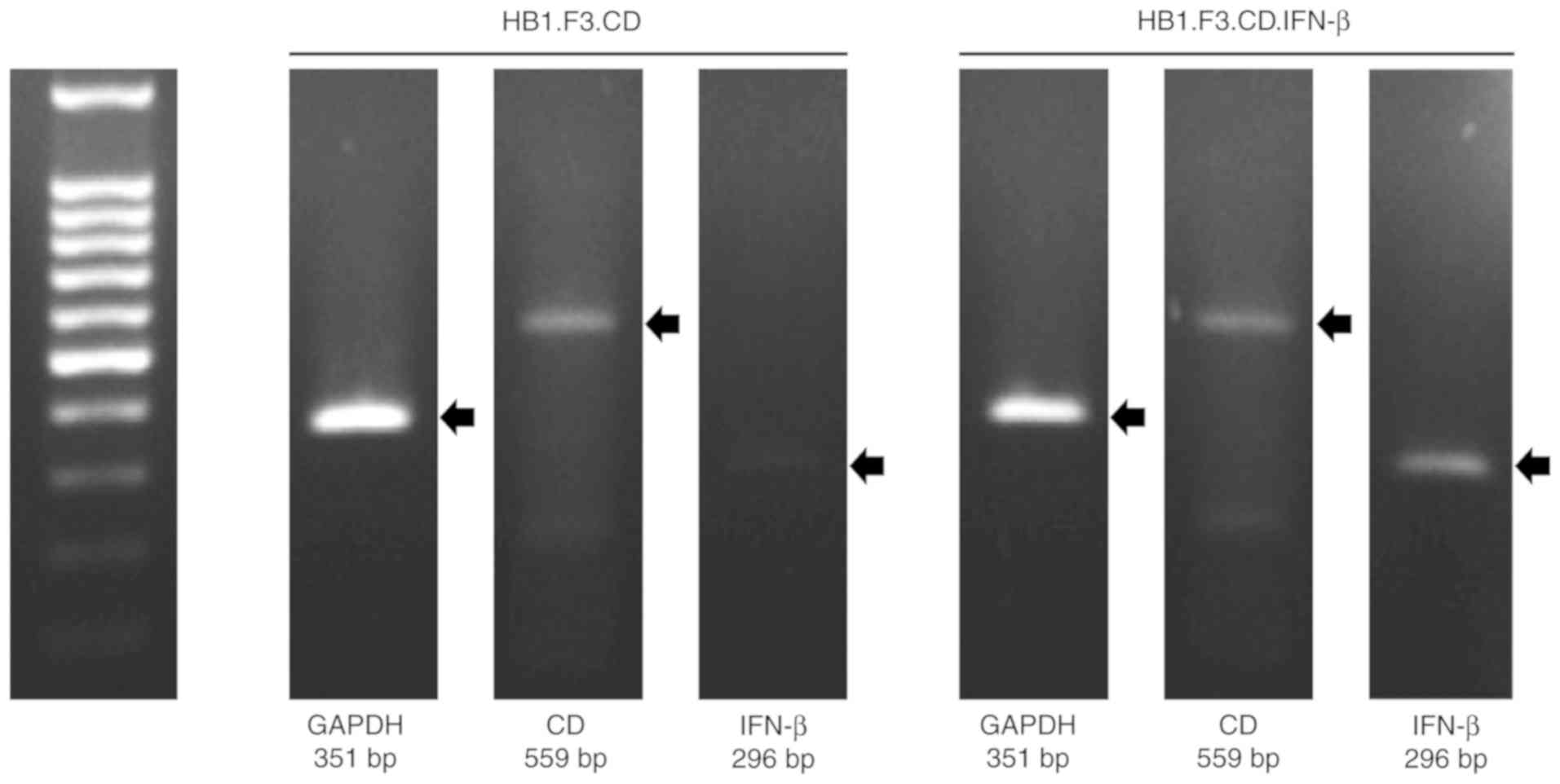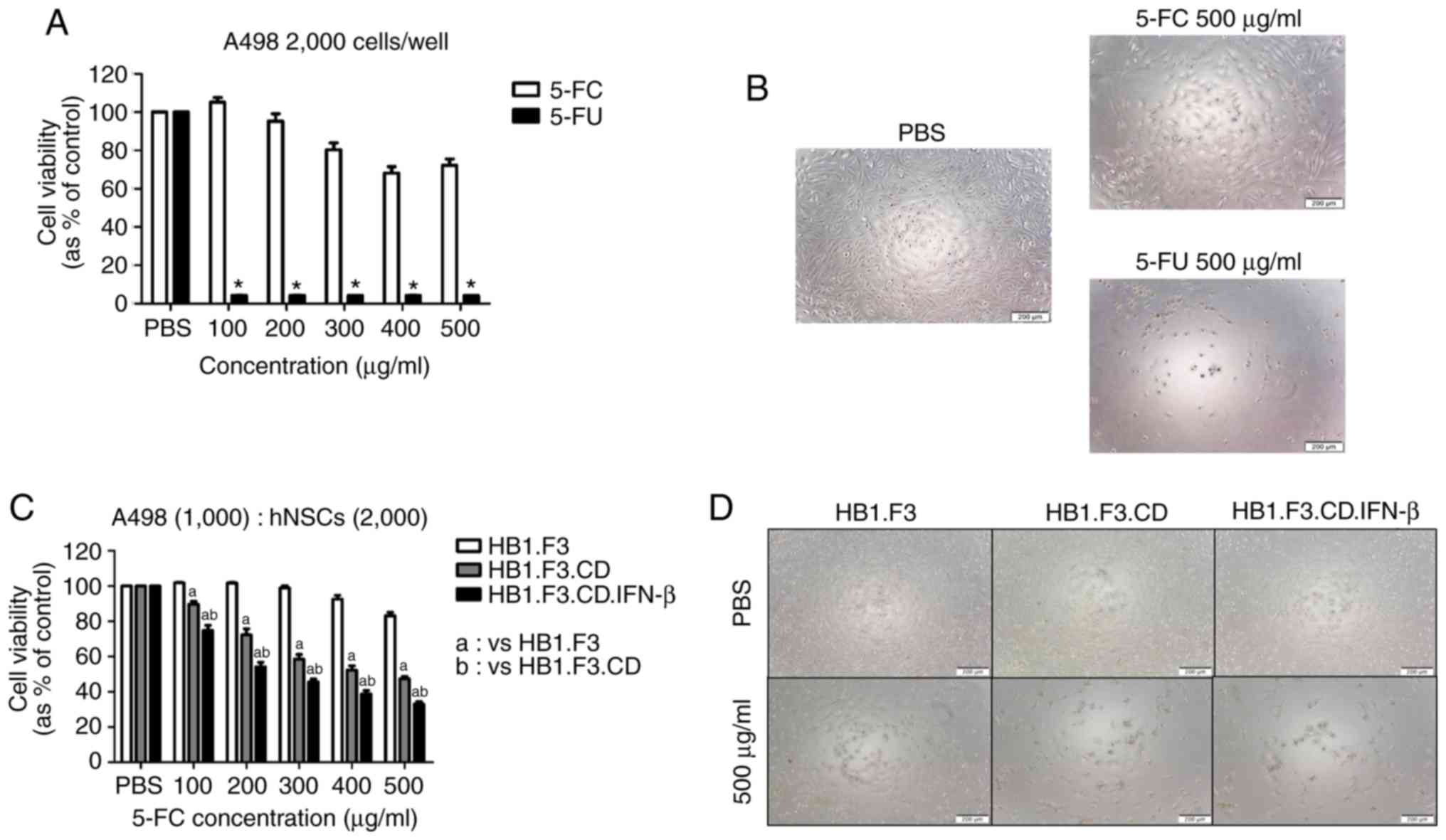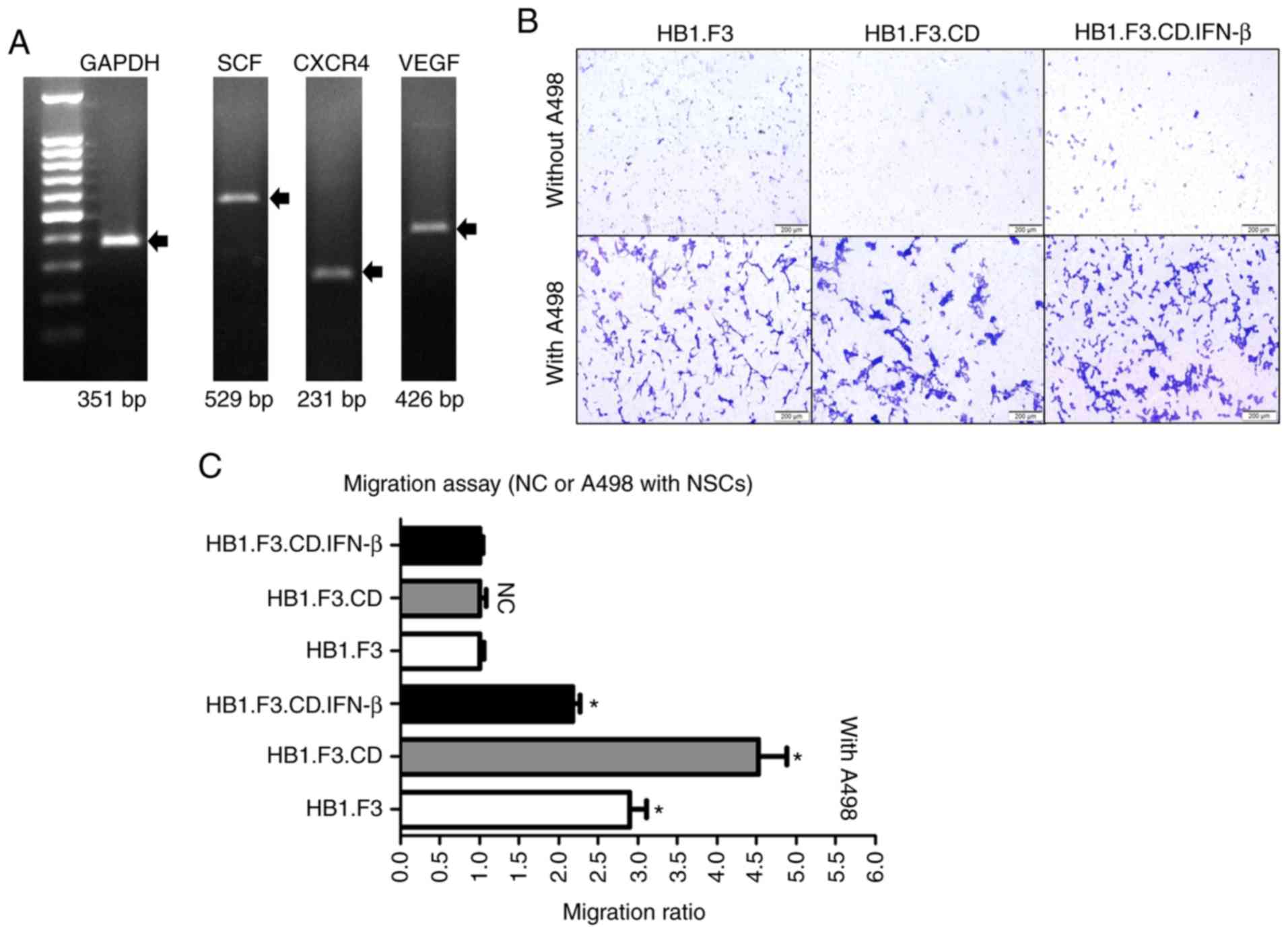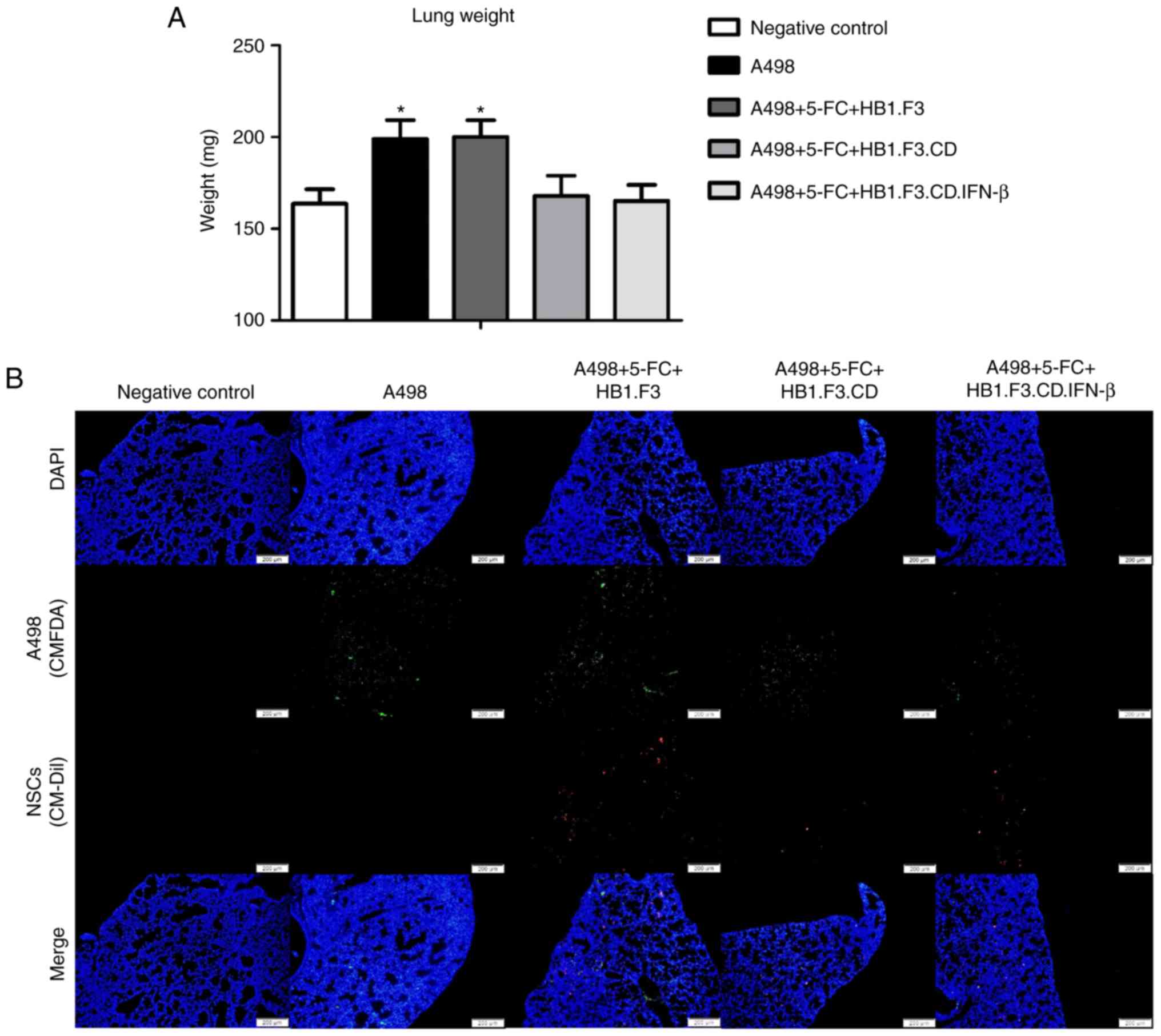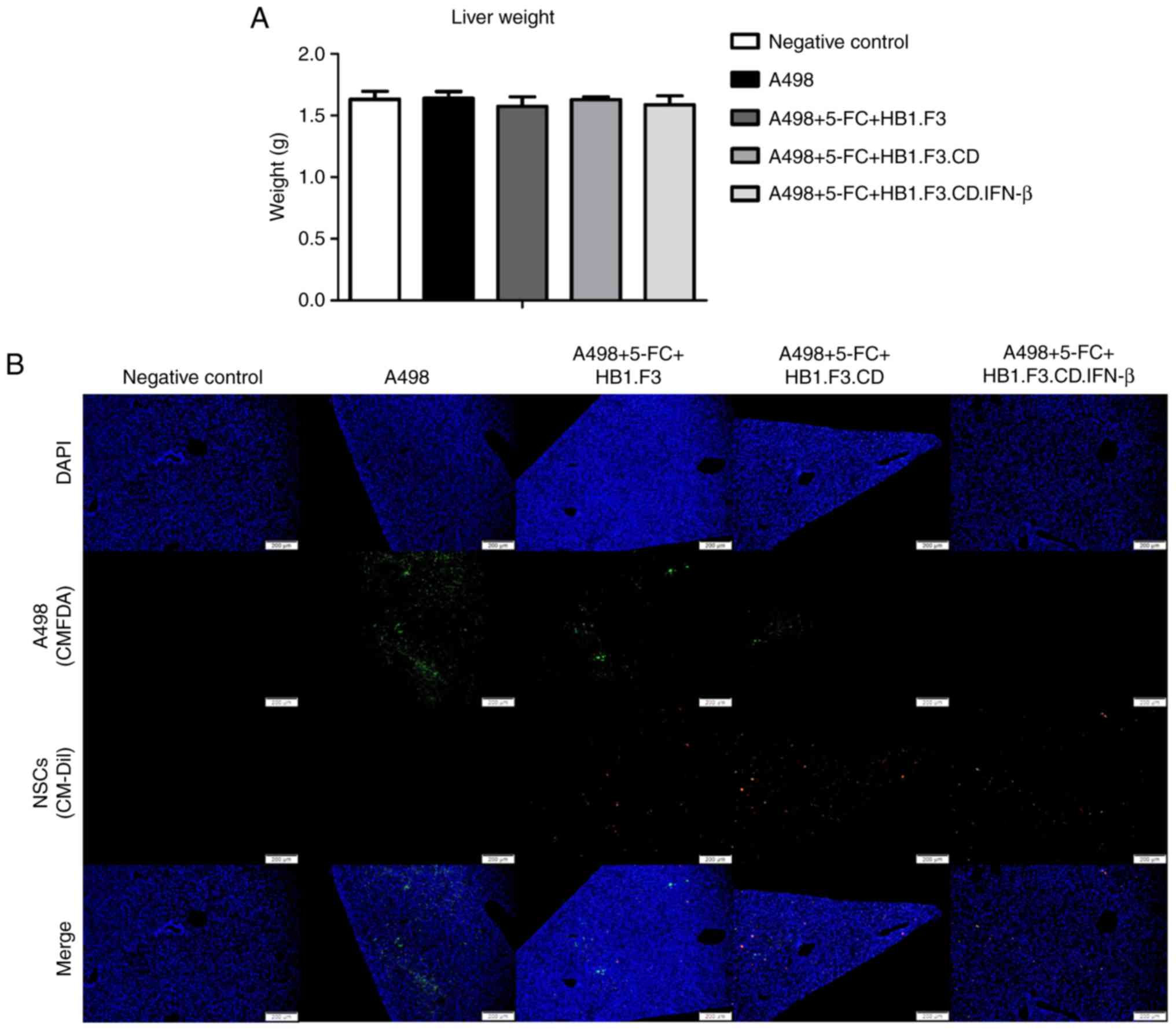|
1
|
Williams RT, Yu AL, Diccianni MB,
Theodorakis EA and Batova A: Renal cancer-selective englerin A
induces multiple mechanisms of cell death and autophagy. J Exp Clin
Cancer Res. 32:572013. View Article : Google Scholar :
|
|
2
|
Curti BD: Renal cell carcinoma. JAMA.
292:97–100. 2004. View Article : Google Scholar
|
|
3
|
Gupta K, Miller JD, Li JZ, Russell MW and
Charbonneau C: Epidemiologic and socioeconomic burden of metastatic
renal cell carcinoma (mRCC): A literature review. Cancer Treat Rev.
34:193–205. 2008. View Article : Google Scholar
|
|
4
|
Basu B and Eisen T: Perspectives in drug
development for metastatic renal cell cancer. Target Oncol.
5:139–156. 2010. View Article : Google Scholar
|
|
5
|
Saini S, Liu J, Yamamura S, Majid S,
Kawakami K, Hirata H and Dahiya R: Functional significance of
secreted frizzled-related protein 1 in metastatic renal cell
carcinomas. Cancer Res. 69:6815–6822. 2009. View Article : Google Scholar
|
|
6
|
Matias M, Casa-Nova M, Borges-Costa J and
Ribeiro L: Unusual head metastasis of kidney cancer. BMJ Case Rep.
2013:bcr20132000042013. View Article : Google Scholar :
|
|
7
|
Zhang F, Shang D, Zhang Y and Tian Y:
Interleukin-22 suppresses the growth of A498 renal cell carcinoma
cells via regulation of STAT1 pathway. PLoS One. 6:e203822011.
View Article : Google Scholar :
|
|
8
|
Amato RJ: Renal cell carcinoma: Review of
novel single-agent therapeutics and combination regimens. Ann
Oncol. 16:7–15. 2005. View Article : Google Scholar
|
|
9
|
Lane BR, Rini BI, Novick AC and Campbell
SC: Targeted molecular therapy for renal cell carcinoma. Urology.
69:3–10. 2007. View Article : Google Scholar
|
|
10
|
Antonelli A, Cozzoli A, Zani D, Zanotelli
T, Nicolai M, Cunico SC and Simeone C: The follow-up management of
non-metastatic renal cell carcinoma: Definition of a surveillance
protocol. BJU Int. 99:296–300. 2007. View Article : Google Scholar
|
|
11
|
Huber BE, Austin EA, Richards CA, Davis ST
and Good SS: Metabolism of 5-fluorocytosine to 5-fluorouracil in
human colorectal tumor cells transduced with the cytosine deaminase
gene: Significant antitumor effects when only a small percentage of
tumor cells express cytosine deaminase. Proc Natl Acad Sci USA.
91:8302–8306. 1994. View Article : Google Scholar
|
|
12
|
Nawa A, Tanino T, Luo C, Iwaki M, Kajiyama
H, Shibata K, Yamamoto E, Ino K, Nishiyama Y and Kikkawa F: Gene
directed enzyme prodrug therapy for ovarian cancer: Could GDEPT
become a promising treatment against ovarian cancer? Anticancer
Agents Med Chem. 8:232–239. 2008. View Article : Google Scholar
|
|
13
|
Qiao J, Doubrovin M, Sauter BV, Huang Y,
Guo ZS, Balatoni J, Akhurst T, Blasberg RG, Tjuvajev JG, Chen SH
and Woo SL: Tumor-specific transcriptional targeting of suicide
gene therapy. Gene Ther. 9:168–175. 2002. View Article : Google Scholar
|
|
14
|
Ye L, Tao K, Yu Y and Wang G: Reduction of
G0 phase cells of colon cancer caco-2 cells may enhance
5-fluorouracil efficacy. J Biomed Res. 24:64–68. 2010. View Article : Google Scholar :
|
|
15
|
Kim KY, Kim SU, Leung PC, Jeung EB and
Choi KC: Influence of the prodrugs 5-fluorocytosine and CPT-11 on
ovarian cancer cells using genetically engineered stem cells:
Tumor-tropic potential and inhibition of ovarian cancer cell
growth. Cancer Sci. 101:955–962. 2010. View Article : Google Scholar
|
|
16
|
Yi BR, Kang NH, Hwang KA, Kim SU, Jeung EB
and Choi KC: Antitumor therapeutic effects of cytosine deaminase
and interferon-β against endometrial cancer cells using genetically
engineered stem cells in vitro. Anticancer Res. 31:2853–2861.
2011.
|
|
17
|
Garrison JI, Berens ME, Shapiro JR,
Treasurywala S and Floyd-Smith G: Interferon-beta inhibits
proliferation and progression through S phase of the cell cycle in
five glioma cell lines. J Neurooncol. 30:213–223. 1996. View Article : Google Scholar
|
|
18
|
Ren C, Kumar S, Chanda D, Kallman L, Chen
J, Mountz JD and Ponnazhagan S: Cancer gene therapy using
mesenchymal stem cells expressing interferon-beta in a mouse
prostate cancer lung metastasis model. Gene Ther. 15:1446–1453.
2008. View Article : Google Scholar :
|
|
19
|
Kim SU, Nakagawa E, Hatori K, Nagai A, Lee
MA and Bang JH: Production of immortalized human neural crest stem
cells. Methods Mol Biol. 198:55–65. 2002.
|
|
20
|
Jeong SW, Chu K, Jung KH, Kim SU, Kim M
and Roh JK: Human neural stem cell transplantation promotes
functional recovery in rats with experimental intracerebral
hemorrhage. Stroke. 34:2258–2263. 2003. View Article : Google Scholar
|
|
21
|
Kim GS, Heo JR, Kim SU and Choi KC:
Cancer-Specific inhibitory effects of genetically engineered stem
cells expressing cytosine deaminase and interferon-β against
choriocarcinoma in xenografted metastatic mouse models. Transl
Oncol. 11:74–85. 2017. View Article : Google Scholar :
|
|
22
|
Park GT, Kim SU and Choi KC:
Anti-proliferative effect of engineered neural stem cells
expressing cytosine deaminase and interferon-β against lymph
node-derived metastatic colorectal adenocarcinoma in cellular and
xenograft mouse models. Cancer Res Treat. 9:79–91. 2017. View Article : Google Scholar
|
|
23
|
Kim SU, Jeung EB, Kim YB, Cho MH and Choi
KC: Potential tumor-tropic effect of genetically engineered stem
cells expressing suicide enzymes to selectively target invasive
cancer in animal models. Anticancer Res. 31:1249–1258. 2011.
|
|
24
|
Li C, Penet MF, Winnard P Jr, Artemov D
and Bhujwalla ZM: Image-guided enzyme/prodrug cancer therapy. Clin
Cancer Res. 14:515–522. 2008. View Article : Google Scholar
|
|
25
|
Singer EA, Gupta GN, Marchalik D and
Srinivasan R: Evolving therapeutic targets in renal cell carcinoma.
Curr Opin Oncol. 25:273–280. 2013. View Article : Google Scholar
|
|
26
|
Schwartz MJ, Liu H, Hwang DH, Kawamoto H
and Scherr DS: Antitumor effects of an imidazoquinoline in renal
cell carcinoma. Urology. 73:1156–1162. 2009. View Article : Google Scholar
|
|
27
|
Lam JS, Leppert JT, Belldegrun AS and
Figlin RA: Novel approaches in the therapy of metastatic renal cell
carcinoma. World J Urol. 23:202–212. 2005. View Article : Google Scholar
|
|
28
|
Lash GE, Warren AY, Underwood S and Baker
PN: Vascular endothelial growth factor is a chemoattractant for
trophoblast cells. Placenta. 24:549–556. 2003. View Article : Google Scholar
|
|
29
|
Koshiba T, Hosotani R, Miyamoto Y, Ida J,
Tsuji S, Nakajima S, Kawaguchi M, Kobayashi H, Doi R, Hori T, et
al: Expression of stromal cell-derived factor 1 and CXCR4 ligand
receptor system in pancreatic cancer: A possible role for tumor
progression. Clin Cancer Res. 6:3530–3535. 2000.
|
|
30
|
Yi BR, O SN, Kang NH, Hwang KA, Kim SU,
Jeung EB, Kim YB, Heo GJ and Choi KC: Genetically engineered stem
cells expressing cytosine deaminase and interferon-β migrate to
human lung cancer cells and have potentially therapeutic anti-tumor
effects. Int J Oncol. 39:833–839. 2011.
|
|
31
|
Zhao D, Najbauer J, Garcia E, Metz MZ,
Gutova M, Glackin CA, Kim SU and Aboody KS: Neural stem cell
tropism to glioma: Critical role of tumor hypoxia. Mol Cancer Res.
6:1819–1829. 2008. View Article : Google Scholar
|
|
32
|
Fischer UM, Harting MT, Jimenez F,
Monzon-Posadas WO, Xue H, Savitz SI, Laine GA and Cox CS Jr:
Pulmonary passage is a major obstacle for intravenous stem cell
delivery: The pulmonary first-pass effect. Stem Cells Dev.
18:683–692. 2009. View Article : Google Scholar
|















